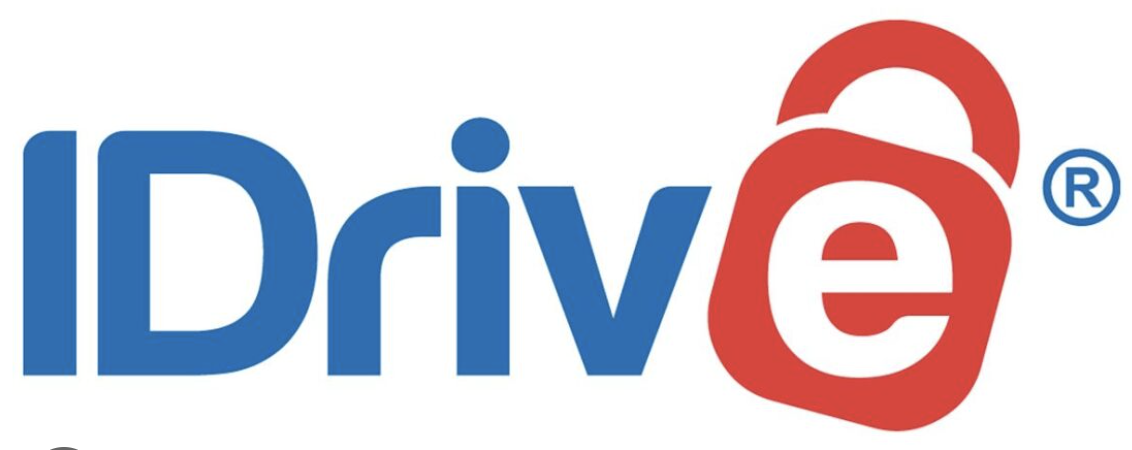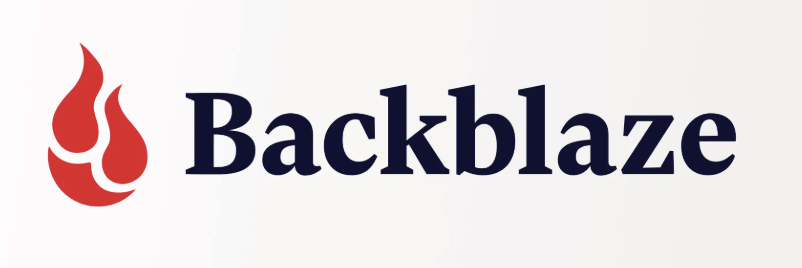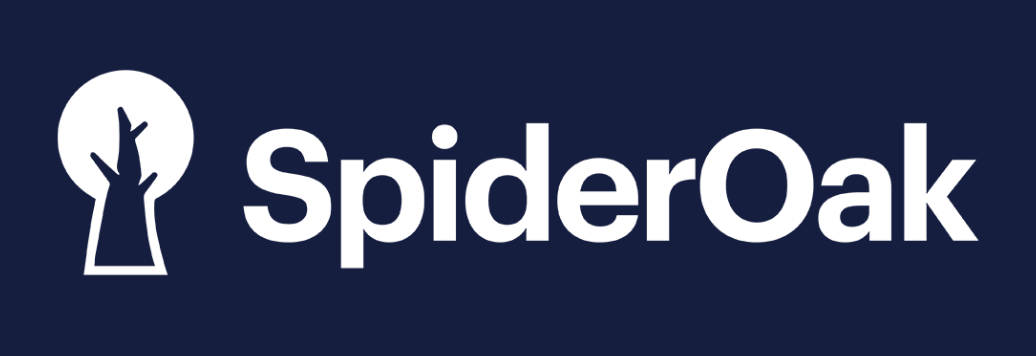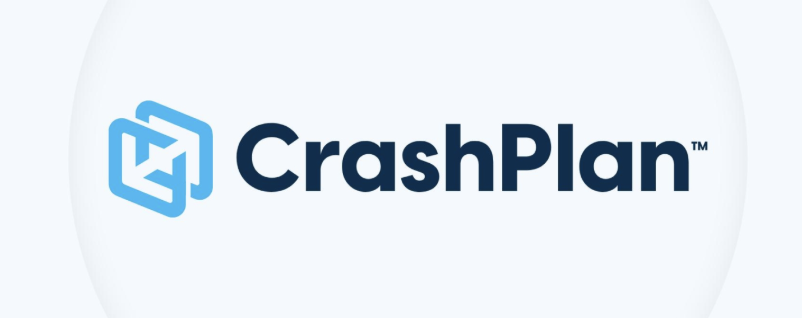
Back to hub
Software
Entrepreneurship
Blog
5 online backup software solutions that truly protect your digital life (2025 Guide)
Published on Oct 24, 2025Updated on Oct 27, 2025
Look, we need to talk about something most people don't think about until it's too late: what happens when your hard drive decides to take a permanent vacation? Or when ransomware locks up your entire digital existence? Or when your laptop takes an unexpected swim in your coffee?
Yeah, I thought so. That sinking feeling in your stomach? That's exactly why you're here.
Here's the truth: backing up your data isn't optional anymore, it's as essential as locking your front door when you leave the house.
But with literally hundreds of online backup software options out there, how do you pick the right one without getting lost in a sea of confusing tech jargon and empty promises?
I've done the heavy lifting for you. After testing countless solutions, comparing features until my eyes glazed over, and actually using these tools in real-world scenarios (because who has time for theoretical reviews?), I've narrowed it down to five online backup software solutions that genuinely deliver.
No fluff. No marketing BS. Just honest insights into which tools will actually save your bacon when disaster strikes.
Let's dive in.
Why Most People Are One Disaster Away From Losing Everything
Before we get into the good stuff, let's establish something important: a good backup service helps you protect your important data from file corruption, accidental deletion or hardware failures.
We're not talking about syncing services like Dropbox or Google Drive here, those are different animals entirely.
Cloud-backup services continuously or periodically copy all or most of the files and folders on your computer to their own cloud servers.
Think of it as your digital insurance policy, one that runs silently in the background while you go about your day.
The scary part? Losing a file, whether it's part of an important project or an irreplaceable picture, is a terrible feeling. In most cases, once a file is corrupted or deleted, it's gone forever.
Unless you have a proper backup strategy.
What Makes a Killer Online Backup Solution?
Not all backup software is created equal. After years of testing (and a few painful learning experiences), I've identified what separates the winners from the wannabes:
Set-it-and-forget-it automation – Because remembering to manually backup is like remembering to floss: we all know we should, but let's be real
Military-grade encryption – Your data should be locked down tighter than Fort Knox
Multiple device support – Because who owns just one device anymore?
Version history – For when you need to roll back to that document from three weeks ago
Reasonable pricing – Protecting your data shouldn't require a second mortgage
Now, let's get to the main event.
The 5 Best Online Backup Software Tools You Can Actually Trust
1. IDrive – The Swiss Army Knife of Cloud Backup

Why IDrive Dominates the Backup Game
IDrive is the best overall cloud backup service, with an excellent combination of backup and cloud storage features. And after using it extensively, I totally get why it consistently wins awards year after year.
What makes IDrive special? It's like that friend who's good at everything, annoyingly competent in all the right ways.
IDrive's Standout Features That Actually Matter
IDrive has many features for both online backup and cloud storage, making it something of a hybrid service. Its cloud backup features let you cover multiple devices, including network-attached storage (NAS) external hard drives and some plans also offer servers.
Here's what caught my attention during testing:
Unlimited devices on one account – Seriously, backup your laptop, desktop, phone, tablet, even your smart fridge if it has files on it
Real-time backup capability – Changes get backed up automatically without you lifting a finger
Social media backups – The backup functionality extends even to your social media content. You can safeguard content from platforms like Facebook and Instagram
Hybrid backup approach – Cloud and local backup options for maximum flexibility
You can back up data to computers or mobile devices, servers, external hard drives and even network-attached storage (NAS). IDrive offers comprehensive NAS compatibility, supporting popular devices from vendors like Synology, QNAP, Asustor and Netgear ReadyNAS
The Pricing Sweet Spot
IDrive is an affordable option with plans designed to meet the needs of a variety of customers. The per-terabyte price is good value for what you get, including backup and cloud storage features.
When paying annually, the monthly price of the 5TB plan is $8.30, not including the first-year discount. Choosing a similar plan through Acronis that includes 5TB and five computers is $30.83 per month. That's a massive difference for basically the same protection.
Security That Doesn't Mess Around
IDrive has some of the best industry options for security with new and innovative features like private key encryption. All data is encrypted upon storage and when transferred with 256-bit AES encryption to ensure the highest level of security.
The Bottom Line: IDrive is the all-arounder champion. If you want comprehensive protection without needing a PhD to figure it out, this is your move.
2. Backblaze – Stupid Simple, Unlimited Storage

When "Set It and Forget It" Actually Works
Backblaze is one of the cheapest cloud-backup solutions, gigabyte for gigabyte. It's definitely the easiest to use: you literally can just set Backblaze and forget it.
I'm talking ridiculously simple here. Install the app, let it do its thing, and go live your life. No complicated configuration menus. No decision paralysis about what to backup. Just pure, unadulterated simplicity.
Why Backblaze Wins on Ease of Use
Backblaze is one of the best cloud backup services with a strong focus on simplicity. Just install the app on Windows or Mac, and it backs up all your files on hard drives and external drives, while uploading new or changed files as they appear.
The beauty of Backblaze? Unlimited storage for a flat rate. No storage caps. No overage fees. No calculating how many gigabytes your photo collection occupies. Just one price, unlimited backup per computer.
Cool Features You'll Actually Use
Generous restore-by-mail feature and rapid upload speeds. Backblaze even lets you locate a lost or stolen computer by geolocating the Wi-Fi network it connects to
Unlimited cloud storage – For real, backup everything
Quick setup – We're talking 5 minutes from download to first backup
30-day version history (extendable to 1 year for a small fee)
The Reality Check
Here's where Backblaze shows its limitations: Backblaze is starting to be left behind as competitors add features such as cloud syncing, file sharing and backups of networked drives.
It's laser-focused on backup and backup alone. No file syncing. No fancy collaboration tools. No mobile device backups.
But you know what? Sometimes simple is exactly what you need.
Pricing: Backblaze costs $9 per month or $99 per year
per computer. Considering it's unlimited storage, that's borderline ridiculous (in a good way).
Perfect for: Single-computer owners who want unlimited backup without the complexity. Students, freelancers, and anyone who values simplicity over feature overload.
3. SpiderOak ONE – Fort Knox-Level Security for Privacy Fanatics

When Privacy Isn't Negotiable
Let's be honest: if Edward Snowden had a favorite backup service, SpiderOak would be in the running. This is the tool for people who take their privacy seriously.
SpiderOak stands out with strong performance and end-to-end encryption, where data is encrypted before being uploaded. But it goes further than that.
The Zero-Knowledge Encryption Difference
SpiderOak One uses "No Knowledge" encryption to give your data NSA-level protection on your computer, in transit, and while it's stored on SpiderOak's servers.
What does that actually mean? SpiderOak employees literally cannot access your files. Ever. Even if they wanted to (or were legally compelled to). Your encryption key never leaves your device unencrypted.
For comparison: most backup services can technically access your files because they hold copies of your encryption keys. SpiderOak doesn't play that game.
Features That Privacy Advocates Love
Zero-knowledge encryption architecture – Your data is your data, period
Unlimited file versioning – SpiderOak One Backup does offer unlimited historic file versions within the storage capacity of the plan being used
Multi-device sync and share – The ability to sync and share files across devices and with other people is a great feature more commonly found with cloud storage software
Works across unlimited personal devices – One account, all your computers
The Price-to-Privacy Trade-off
SpiderOak One Backup is very expensive. Its 150GB plan costs more than competitors like Backblaze, which charge for unlimited storage.
Let's break it down: The 2TB plan costs $12.42 per month (one-year plan), which is far more than Backblaze.
But the 5TB plan redeems SpiderOak a little. At just $26.67 per month (one-year plan), it's surprisingly competitive.
Who Should Choose SpiderOak?
Best for: Journalists, lawyers, healthcare professionals, activists, or anyone handling sensitive information who needs absolute privacy. Also great for paranoid types (no judgment, healthy paranoia keeps you safe in 2025).
Skip it if: You're on a tight budget or you're backing up mostly cat videos and family photos that don't require NSA-grade encryption.
4. Acronis Cyber Protect Home Office – The Power User's Dream

Maximum Features, Maximum Control
Acronis Cyber Protect Home Office may be the most powerful and versatile online-backup solution available, with a terrific desktop application and an insane number of backup and security options.
This isn't your grandmother's backup software. Acronis is what happens when engineers decide "more is more" and actually pull it off successfully.
Why Acronis Is Like a Backup Swiss Army Knife (But Better)
It offers mobile-device, external-drive and social-media backups, as well as syncing and sharing options. It will save an image of your primary hard drive, applications, OS and all, to the cloud. It also includes antivirus software, ransomware protection, a vulnerability scanner and a bootable file-restoration tool
Read that again. Antivirus included. That alone can save you $40-80/year on a separate antivirus subscription.
The Feature Arsenal
Full disk imaging – Clone your entire system, not just files
Active ransomware protection – Because the best defense is a good offense
Vulnerability assessment – Finds security holes before hackers do
Universal restore – Restore your system image to different hardware (lifesaver when upgrading computers)
Bootable recovery media – When your computer won't even start, this saves the day
The Catch (Because There's Always a Catch)
Acronis can be the most frustrating of the best cloud backup services, with prices that rapidly ratchet up as you add devices and storage, and weak web and mobile interfaces.
Translation: It's powerful, but it's not cheap, and the learning curve is steeper than your average backup solution.
Ideal for: Power users or someone who's shopping for antivirus software as well. IT professionals, serious gamers with expensive setups, small business owners, and anyone who needs everything protected—not just documents.
5. CrashPlan – The Business-Friendly Continuous Backup Champion

Unlimited Everything (Pretty Much)
Crashplan is a solid backup program that features a user-friendly interface and unlimited storage space. However, image backups of the entire system are not supported.
CrashPlan has evolved significantly over the years. After discontinuing its consumer product, it's laser-focused on small to medium businesses—and it shows in all the right ways.
What Makes CrashPlan Different
A comprehensive business backup service that's simple to use with no file size limits. We found this to be a hugely customizable service for Windows, Mac, and Linux with a pain-free setup. Once up and running you can mostly just forget about it, and leave CrashPlan to handle securely continuous and scheduled backups with both online and local destinations.
Key advantages:
Truly unlimited storage – No caps, no limits, no surprise bills
No file size restrictions – Backing up huge video projects? No problem
Continuous backup – Changes get backed up automatically and constantly
Cross-platform excellence – Windows, Mac, and Linux (yes, Linux users, someone finally remembered you exist)
Unlimited file versioning – CrashPlan has no versioning limit
The Business-First Approach
CrashPlan shines when you need to protect multiple computers under one centralized admin console. Perfect for:
Small businesses with 5-50 employees
Remote teams spread across locations
Creative agencies with massive file repositories
Any organization that needs audit trails and compliance features
Pricing consideration: CrashPlan's pricing is geared toward businesses, so it's overkill (and overpriced) for single-user consumer needs. But for teams? The value proposition is solid.
Best for: Small businesses, remote teams, and anyone managing backups for multiple users who needs unlimited storage without complexity.
How to Actually Choose the Right Online Backup Software
Still scratching your head? Let me simplify the decision:
Choose IDrive if:
You want the best all-around value and flexibility
You need to backup multiple devices (computers, phones, tablets, etc.)
You appreciate having both backup and cloud storage features in one package
Budget matters but you don't want to sacrifice features
Choose Backblaze if:
You value simplicity above everything else
You have one computer with tons of data to backup
You want unlimited storage for a flat, affordable rate
You don't need fancy features, just reliable, automatic backup
Choose SpiderOak ONE if:
Privacy and security are your top priorities
You handle sensitive or confidential information
You need zero-knowledge encryption that actually means something
You're willing to pay more for absolute data privacy
Choose Acronis if:
You're a power user who wants all the features
You want backup software that doubles as antivirus
You need full disk imaging and disaster recovery capabilities
Technical complexity doesn't scare you (maybe even excites you)
Choose CrashPlan if:
You're backing up a small business or team
You need unlimited storage across multiple users
Cross-platform support (especially Linux) matters
You want continuous backup without file size limits
3 copies of your data (original + 2 backups)
2 different storage types (cloud backup + external hard drive, for example)
1 offsite backup (this is where your online backup software comes in)
The Backup Strategy Nobody Talks About (But Everyone Should Know)
Here's a pro tip that'll save your ass someday: follow the 3-2-1 backup rule.
The general wisdom is to use the 3-2-1 strategy when backing up your data. This refers to keeping three copies of your data, on at least two different storage mediums (physical or digital), with at least one copy stored in a different location to the others.
In plain English:
Don't put all your eggs in one basket. Use online backup software and keep a local backup on an external drive. It's redundancy that pays off when disaster strikes.
Common Online Backup Software Mistakes to Avoid
After helping dozens of friends and clients set up backup solutions, I've seen the same mistakes repeatedly:
Mistake #1: Assuming Sync = Backup
Dropbox, Google Drive, and OneDrive are sync services, not backup services. Online storage syncing involves mirroring, where any deletions or changes are reflected on the other end. While online backup uses versioning, so older data is retained, an important failsafe.
Delete a file on your computer? It gets deleted from your sync service too. That's not backup, that's mirroring.
Mistake #2: Never Testing Restores
Backing up is only half the battle. If you can't restore your files when needed, your backup is worthless. Test your restore process at least once after setup. Better to discover issues now than during an actual emergency.
Mistake #3: Ignoring Encryption Settings
Most providers use AES 256-bit encryption and TLS/SSL encryption protocols to protect your data at rest and in transit. But pay attention to who holds the encryption keys. For maximum privacy, opt for services offering private encryption keys, even if it means you're responsible for remembering them.
Mistake #4: Not Reading the Version History Policies
Some services keep old file versions for 30 days. Others keep them indefinitely. Know your provider's policy, especially if you work with files that change frequently.
FAQ: Your Burning Questions About Online Backup Software
What's the difference between online backup and cloud storage?+
There is a distinction between cloud backup and cloud storage. Cloud backup services can synchronize files to ensure they are up-to-date and provide an immediate backup of your important data if you lose it. Cloud storage (like Dropbox) focuses on accessing files from anywhere, while backup services focus on protecting and recovering data.
Is online backup safe and secure?+
Online storage backup is safe, as most providers use AES 256-bit encryption and TLS/SSL encryption protocols to protect your data at rest and in transit. The key is choosing reputable providers and enabling private encryption when available for sensitive data.
How long does the initial backup take?+
It depends on your internet upload speed and how much data you're backing up. For reference, uploading 1TB on a 10 Mbps upload connection takes roughly 9-10 days of continuous uploading. Many services offer "seed drives" for initial backups—you load your data onto a physical drive they send you, ship it back, and they upload it to your account from their data center.
Can I backup external hard drives?+
Most services support external drive backups, but check your specific provider. IDrive lets you backup Mapped / USB / External Drives by adding them to your backup set; backup NAS devices like Synology, Netgear, Asustor, QNAP with dedicated applications.

Clear, transparent prices without hidden fees
No commitment, prices to help you increase your prospecting.
Credits(optional)
You don't need credits if you just want to send emails or do actions on LinkedIn
May use it for :
Find Emails
AI Action
Phone Finder
Verify Emails
€19per month
1,000
5,000
10,000
50,000
100,000
1,000 Emails found
1,000 AI Actions
20 Number
4,000 Verify
€19per month
Discover other articles that might interest you !
See all articlesSoftware
Published on Jun 16, 2025
Alternatives to Google: 5 Search Engines That are Revolutionizing the Web in 2025
 Mathieu Co-founder
Mathieu Co-founderRead more
Software
Published on Jun 19, 2025
The 7 Best Alternatives to Zoom in 2025
 Mathieu Co-founder
Mathieu Co-founderRead more
AI
Published on Jun 18, 2025
The 6 Best AI Meeting Assistants in 2025
 Mathieu Co-founder
Mathieu Co-founderRead more
AI
Published on Jun 19, 2025
The 6 Best AI Tools for Creating Presentations in 2025
 Niels Co-founder
Niels Co-founderRead more
LinkedIn
Published on May 20, 2025
How to Find Someone’s Phone Number in 2025: 7 Methods
 Marie Head Of Sales
Marie Head Of SalesRead more
Blog
Published on Jun 19, 2025
The 7 Best PDF Editing Apps in 2025
 Niels Co-founder
Niels Co-founderRead more
Made with ❤ for Growth Marketers by Growth Marketers
Copyright © 2026 Emelia All Rights Reserved
